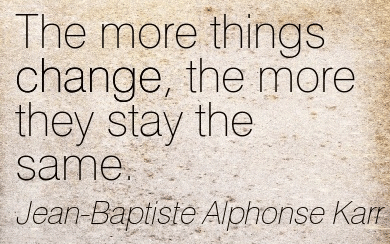Christian Insurance Plans: A Sure Bet or Rolling The Dice?
- January 16, 2019
- Posted by: Tony Lehrman
- Category: Affordable Health Care


Christian Insurance Plans: A Sure Bet or Rolling The Dice?
Do you remember your first online purchase from Amazon? If you tentatively clicked that “purchase” button like I did back in 2005, it was most likely an amount under $10. After all, what could possibly go wrong in a roll of the dice for ten bucks? Fast forward to 2018 … Amazon delivers to my house 2 to 3 times a week!
According to most modern Christian insurance plans, the cost-sharing idea for medical care has been around for more than 2,000 years. The model for medical sharing is based on a principle found in the book of Acts which describes a community of mutual care in the early Christian church:
“but they had everything in common … and it was distributed to each as any had need.” (Acts 4:32-35).
The evolution of this idea was for a large group to share their resources and come to the aid of anyone who was in need. This precept of mutual care has survived two millennia and found its way around 30 years ago into medical plans that provide financial relief for rising medical costs.
Why the need for Christian Healthcare?
 Only an alien being from a distant planet would be unaware of the troubling state of our healthcare system and its mounting costs. Increases in insurance premiums and medical procedures have been at the center of a search for sensible alternatives for decades.
Only an alien being from a distant planet would be unaware of the troubling state of our healthcare system and its mounting costs. Increases in insurance premiums and medical procedures have been at the center of a search for sensible alternatives for decades.
Adding insult to injury (not to overwork the obvious pun), the U.S. government decided to get into the act and provide the bureaucratic “cure” for all that ails us – The Patient Protection and Affordable Care Act, signed into law by President Barack Obama on March 23, 2010.
With encouraging words like “overhaul,” “expanded coverage” and “medical reform,” we were told that this was the most important health care legislation enacted in the United States since the creation of Medicare and Medicaid in 1965.
Depending on your political party registration, this was either a blessing or a nightmare with no shortage of commentary on both sides of the aisle. But of the millions of words spoken about the ACA, none have been more to the point than these eight words in a 2015 report from Gary Claxton, the Director of the Health Care Marketplace Project at the Kaiser Family Foundation:
Those changes likely will shift costs to workers.
Another quote, attributed to French novelist Jean-Baptiste Alphonse Karr (1808-1890), is a timeless reminder about where we stand in the healthcare debate:

And that leads us back to our question … Why Christian Healthcare Ministries as an alternative to traditional health insurance?
Although many would point to the personal aspect of a community-based sharing approach to covering medical expenses, it is the COST savings that is the deciding factor for a large number of members.
The bottom line for a growing number of individuals and families … health care sharing ministry plans are THE affordable alternative to insurance, providing reasonable pricing and more personalized care.
Cost savings is an important factor in making a decision for health sharing membership, but one principle unifies the thinking of many participants: Wayne Smith, executive director of the Delaware Healthcare Association, points to that central theme:
If citizens want to come together, great. That’s the American way.
Far from being on the fringe of the marketplace there is growing mainstream acceptance for this unique and affordable alternative to traditional health insurance.
Money-management expert, Dave Ramsey recently responded to a caller’s inquiry about health insurance on his radio show:
Another thing you could look at is one of the medical sharing programs through a Christian organization…
Nationally-syndicated consumer expert and radio host Clark Howard, whose mantra is “save more, spend less, and avoid scams and ripoffs,” offered this advice on his website in 2017:
 As health care expenses have ballooned over the last decade, health care sharing ministries have gained in popularity as a lower cost alternative to traditional insurance. Their numbers still pale in comparison to people who receive insurance through employers or the federal marketplace. But health care sharing ministries have experienced an explosion in interest in recent years.
As health care expenses have ballooned over the last decade, health care sharing ministries have gained in popularity as a lower cost alternative to traditional insurance. Their numbers still pale in comparison to people who receive insurance through employers or the federal marketplace. But health care sharing ministries have experienced an explosion in interest in recent years.
Christian health insurance alternatives have also entered the political mainstream: Florida lawmakers recently introduced a bill recognizing health cost sharing ministries.
 For some, health care is biblical.
For some, health care is biblical.
And the Florida Legislature wants to keep it that way.
A state House committee on Thursday overwhelmingly approved a bill that could help boost enrollment in health cost-sharing arrangements offered by non-profit religious organizations.
Living by faith – there’s more to that adage when considering how to pay for medical expenses.
This story from Politico demonstrates the growing interest in health sharing:
What was once a fringe idea, limited to devout Evangelicals and small Mennonite churches in more rural parts of the country, has found acceptance with a segment of the population for whom the government safety net is unavailable and the free market options are un-affordable.
But no amount of “reporting” about the subject of healthcare can substitute for stories from people who have actually experienced sharing plans as a “first-person” narrative. The following comments come from a self employed writer who recorded his thoughts at The Christian Pen, an education and networking community of authors, writers and editors:
When I saw the flurry of news stories in late 2017 about healthcare insurance choices, I thought maybe I would be a bit late in blogging now about the wise alternative: Christian health cost sharing plans.
All operate from the same philosophical foundation: Christians help other Christians pay their health care expenses. There are so many kinds of wrinkles, options and deductibles involved that there’s no way to give a simple rundown of any one plan.
Some people I’ve mentioned sharing plans to express reluctance to join because of the lack of a “guarantee.” Since these plans aren’t legally insurance, they can’t guarantee any expenses will be paid. However, over the years one of our plans paid more than $250,000 for cancer, heart surgery, and other major medical expenses. Kind of puts that concern to rest, wouldn’t you say?
Ken Walker is co-author & editor of more than a dozen health-oriented books.
Are you a candidate for this affordable approach to healthcare?
Well, if you’ve read this far then the likelihood of your interest in seeking an affordable health plan seems pretty high. If cost savings is a major concern in your decision to purchase, then the information at Lehrmangroup.com could be a key in understanding the options available.
There are many reasons for joining a faith-based health plan: religious, sense of community, flexibility, affordability, lifestyle issues … if your reasons are represented by any or all of these, then start at our Frequently Asked Questions page to find answers to the questions you’re already asking.
And by the way, the odds of finding some solid answers is a “sure bet” – we think that’s better than rolling those dice.

